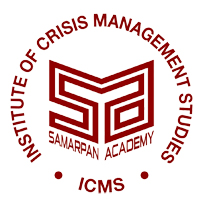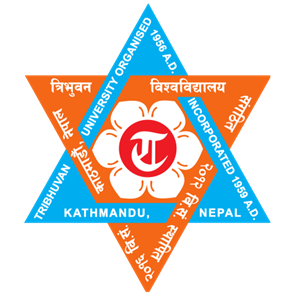Overview
MA in Psychology at Tri-Chandra Campus, Ghantaghar, Kathmandu (affiliated with TU)
The Master of Arts in Psychology at Tri-Chandra Campus, affiliated with Tribhuvan University (TU), is a comprehensive program that delves into the scientific study of human behavior, emotions, and thought processes.
This postgraduate program is designed for students exploring advanced psychological theories, research methodologies, and practical applications in diverse settings. It emphasizes academic excellence and real-w, preparing parts graduates to address mental health challenges, enhance well-being, and contribute to the field of psychology.
Program Duration
The MA in Psychology program spans two years and is divided into four semesters. Each semester combines core courses, electives, practical training, and a research thesis. This structure ensures a balanced approach to theoretical knowledge and hands-on experience.
Eligibility Criteria
To be eligible for the MA in Psychology program at Tri-Chandra Campus, applicants must meet the following requirements:
-
Must have a bachelor’s degree in Psychology or a related field from a recognized institution.
-
Must obtain a minimum CGPA of 2.0 or second division in the undergraduate program.
-
Students from other disciplines may need to complete prerequisite courses as determined by the university.
Admission Process
-
Application Submission: Complete the application form, available online or at the campus admission office.
-
Entrance Examination: Attend the entrance test conducted by Tribhuvan University. The test evaluates knowledge of psychology and related analytical skills.
-
Merit List: Admission is based on the entrance exam score and academic records.
-
Document Verification: Submit academic transcripts, citizenship proof, and recommendation letters.
-
Enrollment: Confirm your admission by paying the required fees and completing the registration process.
Course Outline
The curriculum is developed to provide a deep understanding of psychological theories, research, and applications. Below is a detailed breakdown:
Year 1, Semester 1:
-
Advanced Cognitive Psychology
-
Theories of Personality
-
Research Methods in Psychology
-
Practical: Psychological Testing and Measurement
Year 1, Semester 2:
-
Advanced Social Psychology
-
Neuropsychology
-
Psychopathology
-
Practical: Case Study Analysis
Year 2, Semester 3:
-
Counseling and Psychotherapy
-
Organizational Psychology
-
Elective: Health Psychology or Forensic Psychology
-
Seminar: Current Issues in Psychology
Year 2, Semester 4:
-
Thesis/Research Project
-
Elective: Positive Psychology or Educational Psychology
-
Practical: Fieldwork and Supervised Counseling
Subjects Offered
-
Advanced Cognitive Psychology
-
Social Psychology
-
Personality Theories
-
Research Methods
-
Psychopathology
-
Counseling and Psychotherapy
-
Neuropsychology
-
Organizational Psychology
-
Health Psychology
-
Forensic Psychology
-
Positive Psychology
-
Educational Psychology
Program Objectives
-
To empower in-depth knowledge of psychological theories and practices.
-
To enhance research skills for addressing contemporary psychological challenges.
-
To prepare students for roles in counseling, therapy, and organizational settings.
-
To promote ethical practices and cultural sensitivity in psychological interventions.
-
To foster innovation and critical thinking in the field of psychology.
Teaching Methodology
The program employs a dynamic teaching approach, combining traditional lectures with interactive sessions, group discussions, and workshops. Students undergo hands-on training through supervised fieldwork, case studies, and internships. Faculty members incorporate evidence-based practices and use advanced tools to facilitate learning, encouraging students to apply their knowledge in practical settings.
Learning Outcomes
Graduates of the program will:
-
Demonstrate advanced knowledge of psychological principles and theories.
-
Develop skills in psychological assessment and intervention.
-
Conduct independent research using scientific methodologies.
-
Address mental health issues with culturally sensitive approaches.
-
Communicate effectively in academic and professional contexts.
-
Apply psychological concepts to improve individual and organizational well-being.
Future Scope
The MA in Psychology provides a foundation for further studies, such as a Ph.D. in Psychology or specialized clinical, counseling, or organizational psychology certifications. Graduates can also explore interdisciplinary fields like neuropsychology, health psychology, or forensic psychology. The program equips students to contribute to global and local mental health solutions.
Career Prospects
Graduates can pursue careers in:
-
Clinical and Counseling Psychology
-
Organizational and Industrial Psychology
-
Educational Institutions as School Counselors
-
Research and Academia
-
Social Work and Community Development
-
Health and Rehabilitation Centers
-
Forensic Psychology
Scholarship Opportunities
Tri-Chandra Campus offers scholarships for deserving students based on academic merit, economic need, and government or institutional quotas. Students are encouraged to inquire about specific scholarships during the admission process.
Fee Structure
Tribhuvan University determines the tuition fees, which are subject to periodic revisions.
Extracurricular and Co-Curricular Activities
Students participate in workshops, mental health awareness campaigns, and academic conferences. These activities enhance their understanding of psychological issues while providing opportunities for networking and skill development.
Real-World Application
The program emphasizes practical applications through internships, fieldwork, and supervised counseling sessions. Students gain real-world experience working with diverse populations in clinical, organizational, and community settings.
Sustainability and Social Impact
The curriculum integrates topics on sustainable mental health practices and their societal impact. Students are trained to develop interventions that promote long-term psychological well-being and social resilience.
Skill Development
The program emphasizes building key skills such as critical thinking, problem-solving, emotional intelligence, and research analysis. Students also develop expertise in communication, teamwork, and ethical decision-making.
Global Perspective
Courses on cross-cultural psychology and global mental health challenges prepare students to address diverse psychological issues. The program equips graduates to work in international settings and collaborate on global research projects.
Facilities and Support
Tri-Chandra Campus provides well-equipped laboratories, a comprehensive library with access to psychology journals, and computer labs for research and analysis. Students benefit from academic counseling, mentorship programs, and career guidance services.
Why Choose an MA in Psychology?
This program offers a holistic education that combines theoretical knowledge with practical applications. It prepares students for diverse career paths, emphasizing ethical practice and innovation in psychological sciences. The focus on research and real-world problem-solving makes it a valuable choice for aspiring psychologists.
Is the MA in Psychology Right for You?
This program is an excellent fit for students who are passionate about understanding human behavior, want to help others, and are interested in exploring psychological research. It caters to students with diverse interests and offers growth opportunities.
What is the Future of the MA in Psychology?
The future of this program is promising, as mental health is increasingly recognized as necessary globally. Graduates will play vital roles in addressing psychological challenges, contributing to innovative solutions, and advancing research in the field.
How to Improve Your Study of Psychology Education
To excel in psychology, engage in active learning by participating in discussions, internships, and research projects. Utilize academic resources like journals and case studies to deepen your understanding. Build a strong foundation in research methods and stay updated on emerging trends in psychology. Practice self-care to maintain emotional resilience.
Conclusion
The MA in Psychology program at Tri-Chandra Campus provides a robust foundation for students seeking to advance their knowledge and skills in psychological sciences. With its emphasis on academic rigor, practical applications, and ethical practices, the program prepares graduates to make meaningful contributions to mental health and well-being. Whether gaining further studies or entering the workforce, this program offers the tools needed for success.
Contact Tri Chandra Multiple Campus's administrative office for detailed information on the MA in Psychology course, including fees, scholarships, facilities, counseling, eligibility criteria, etc.


















